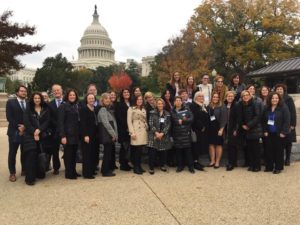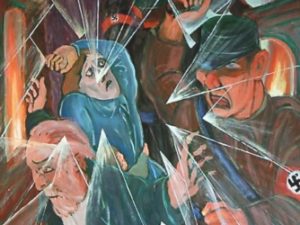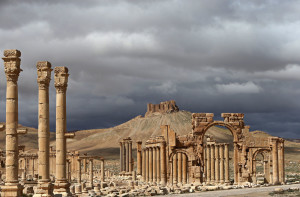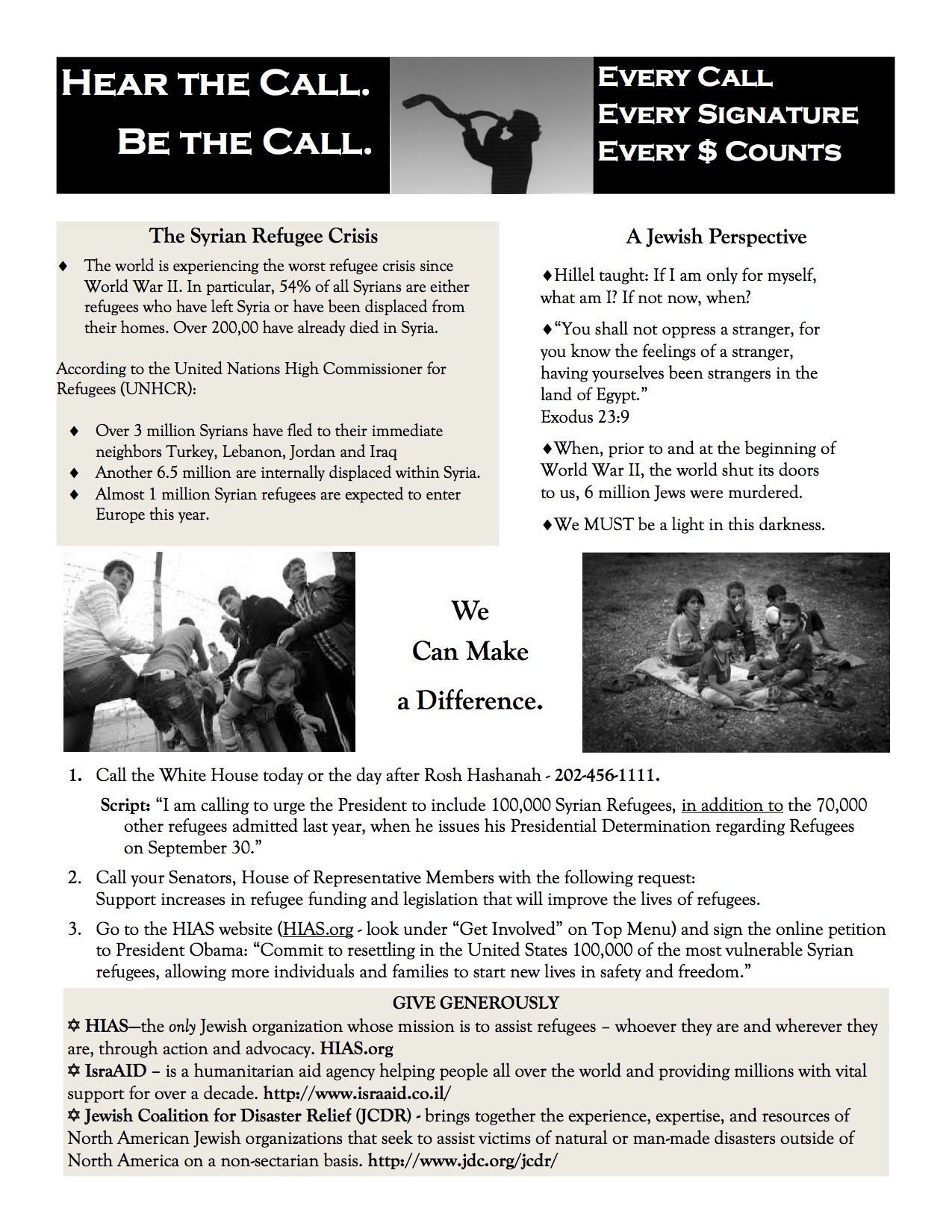#4 What do we do now- Be Kind
We come to the Third part of Hillel’s quote: If not now, When? The answer is NOW.
I have refrained from speaking directly about Charlottesville with you thus far.
I am sure that the public display of hate deeply pained you.
The horrible chants, torch-lit marching, gun-toting thugs,
40 Jews inside Congregation Beth Israel that evening,
spiriting their Torahs out the back door, expecting the Temple to be burned, it sickens me.
The Nazi march was vile and despicable behavior by people who live on the fringes of our society,
a group that trucks in hatred,
truly disenfranchised miscreants who crawled out from the dark underbelly of this great nation
and are mired in their own bizarre fantasies of violence and white supremacy.
I am very angry and deeply saddened by this horrific display.
And I am equally appalled by the lack of moral leadership on this and all issues at the highest levels in our land.
However, I am not fearful.
And in response to the horrors of Charlottesville
I have a one-word reply:
Houston.
Charlottesville and many other places make it clear we have a long way to go in the battle for life, liberty, and equal justice for all.
Again I say Houston. For there in Houston, there is hope.
In response to the devastating Hurricane Harvey that dumped floodwaters of biblical proportions on the region,
the very best of humanity showed up to the rescue.
There were only two groups in the city:
The rescuers and those in need of rescue.
Race, religion, color, creed, age, sex, gender identification, political affiliation, economic class, social class-
Nothing mattered except the need to save lives of people.
The Cajun Navy spontaneously appeared, people helped people, human chains literally reaching out into the floodwaters,
holding tight to each other
so that another life could be saved from the torrents of water. Everyone was on both ends of that lifeline.
In losing everything, the people of Houston found something truly precious, their humanity.
My response to the horror of Charlottesville is the beauty of Houston.
We seem to be at our best in the aftermath of a calamity.
Houston, Sandyhook, 9/11- these are only a few catastrophes to which we have risen up as a people,
United in bonds of love and fellowship.
Why must we reserve our best in response to tragedy?
This Yom Kippur, I suggest we preemptively deploy our best behavior in our everyday lives.
Let us shine light into the darkness
and illumine a path that leads out of the narrow places,
the Mitzrayim- the Egypt- those spaces both literal and figurative that both confine and oppress us.
Let us join together doing acts of loving-kindness.
Let us not sit helplessly and lament the world we long for.
Let us reach out to one another and build the world that should be. Let the humanity of Houston be our inspiration.
Together let us march forward
carrying love in our hearts and good deeds in our arms.
We have come to the proverbial edge of the Red Sea,
yet one more time in our history. Let us cross over together.
(And if I sound a bit like a Southern Baptist preacher, I can only say, Thanks, Grandma.)
How do we do this?
For you may say, I am only a single individual-
what effect can I possibly have?
I recall the story told of Mother Theresa,
that saint who tended the poorest of the poor in India.
A cynic asked her how she intended to feed the overwhelming masses who were hungry- she responded simply,
One Mouth at a Time.
And that is how we do it.
Each of us has the power to effect change.
The V’ahavta prayer says VeLo Taturu.
Never underestimate the power to make a difference- each of us.
It is about meeting people, one person at a time.
It is about individuals building relationships with one another
and building these connections into bigger connections,
building a community with shared values and purpose.
And it all starts with one simple idea: You.
Rabbi Hillel says in Pirkei Avot,
“In a place where there are no men, strive to be a man.”
As Jeffrey Goldberg of the Atlantic insightfully translates,
it means to be a mature, courageous human being;
it also means to be a mensch. So I sum it up and say simply to you: Be Kind.
In an age and culture where we have become coarse and combative,
BE KIND.
In a world filled with overwhelming loneliness and alienation,
BE KIND.
In a world quick to cynically chastise and separate with fractiousness and divisiveness,
BE KIND.
Hillel condensed all Torah to this:
“What is hateful to you, do not do to another.”
BE KIND. This as our call to action.
Start with yourself.
Let us free ourselves from the shackles of guilt and sin keeping us mired in the past.
Learn from it to live next year better.
Be kind and forgiving of your self. Starting now.
Promise yourself to engage.
Jews are taught to awake with the words “I am Thankful.”
“Modeh Ani Lifanecha, Elohai Nishama Shenatati bi tihora hi.” ‘Thank you God for restoring my pure soul.”
What a beautiful intention to start the day.
A fresh slate, built on gratitude for our blessings
and hopeful for the possibilities that await us.
Use the day to engage in the things that motivate you- your Why. Actively support something you believe in,
a philanthropy or a cause,
be part of something greater than yourself.
End your day with a bedtime Shema- prayer.
Go to sleep knowing
you are in the sheltering arms of the One who loves and protects you.
Nurture your relationships.
Be compassionate and forgiving; for they too are as flawed, seeking wholeness and love.
BE KIND.
Find your community and
BE KIND.
We need a caring community to support and comfort us
During times of celebration and sorrow.
Temple Micah is an extraordinary community to find people with shared values.
And together we can make a difference
rising up our voices as one,
speaking with more power than one alone to affect greater change. Give to the food bank,
give to help the suffering victims on Puerto Rico.
BE KIND.
Our greater communities, both our nation and the world,
need people to champion our values now more than ever.
Your voice, your time and your money are all necessary
to champion the things you believe in.
There is no shortage of need, and we cannot be silent.
“Kol Arevim Zeh BaZeh.”
All Israel is responsible for each other.
Whether you see Israel literally or metaphorically,
you can make a difference in
the genocide of the Rohingya, happening as we speak,
climate change, Israel, healthcare, the political debate both national and local.
These issues are our issues.
Find the one that resonates with your and pursue it.
We need to build a better world.
I believe it can happen.
But only if we are willing to roll up our sleeves and do the work necessary,
for it cannot happen on its own.
As it says in Psalm 89 verses 3,
Olam Chesed Yibaneh. “We will build this world with love.”
Jewish Love is not romantic love.
We learn Jewish love in the Shema and V’ahavta prayer.
Love is an active verb.
Jewish love is not a state of being, it is a state of doing.
The prayer instructs us to Love God by living the commandments, teaching them to our children
and fully embracing them in all of our thoughts and actions.
Jewish wisdom sees the Heart as the guide to emotion and action. I am the change I want to see.
This is the empowering message of the Torah.
It implores us to embrace that
only through our own action will we begin to build the world that should be.
The people of our nation have always had to fight for the values we hold dear;
from the moment we first expressed them through the present day. This amazing country of ours is both resilient and great.
But we remain a work in progress with a long way to go before all of her children will enjoy the aspirations of our foundational documents, including the Declaration of Independence, the Bill of Rights and Emma Lazarus’s poem on the Statue of Liberty.
Life, liberty, and equal justice for all remain the promise we still strive to achieve.
This promise is the beacon of light shining from on top of the hill to the other nations of the world.
We will build this nation on love.
Olam Chesed Yibaneh. We will build this world on love.
As we move toward the end of our prayers today
we will hear that the gates are closing and also
that the gates of repentance are never closed.
These two seemingly contradicting ideas both live in our texts.
I believe that with Ne’ilah, our closing prayers,
the liturgists are exhorting us to act.
It is the urgency of now. We cannot wait.
The prophetic tradition that is ours,
The fragility of life that makes each day a gift-
they combine to say “don’t wait another minute.”
So here is this sacred space, as we conclude our services this day,
I encourage everyone here to smile at one another,
kiss and embrace your loved ones,
and kiss and embrace whoever is near you.
This is the start of something new.
We will build this world with love.
G’mar Tov- May you be sealed for Good
Olam Chesed Yibaneh (sing)

 And yesterday, November 9, I was proud to accompany the Women’s Philanthropy Division of the Jewish Federation of Greater Philadelphia on a trip to Washington, DC to advocate both in Congress and the White House for DACA, Responsible Gun Legislation, Food Insecurity and the SNAP program, and against BDS and Anti-Semitism. We championed our values and spoke truth to power with persuasive force and civility.
And yesterday, November 9, I was proud to accompany the Women’s Philanthropy Division of the Jewish Federation of Greater Philadelphia on a trip to Washington, DC to advocate both in Congress and the White House for DACA, Responsible Gun Legislation, Food Insecurity and the SNAP program, and against BDS and Anti-Semitism. We championed our values and spoke truth to power with persuasive force and civility.



